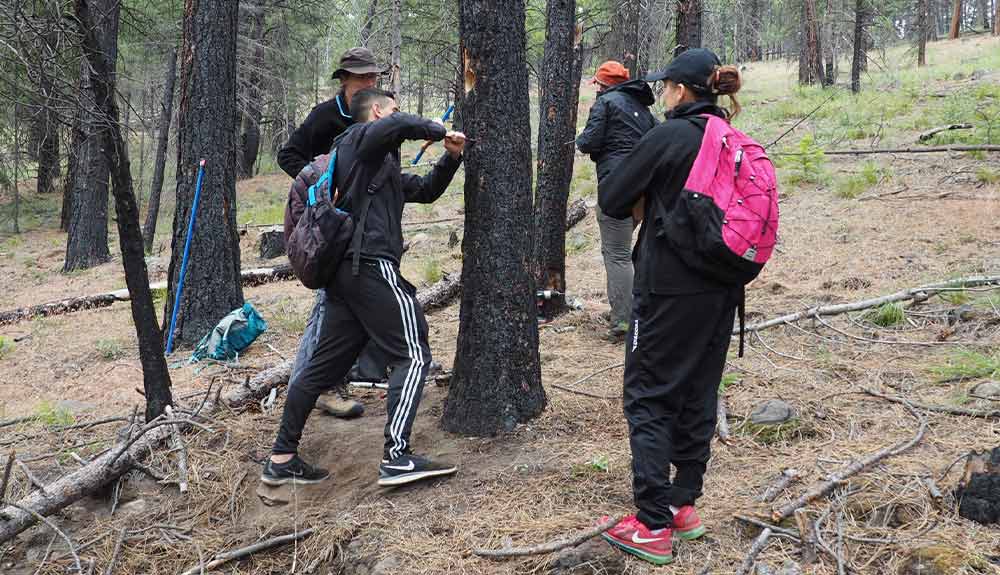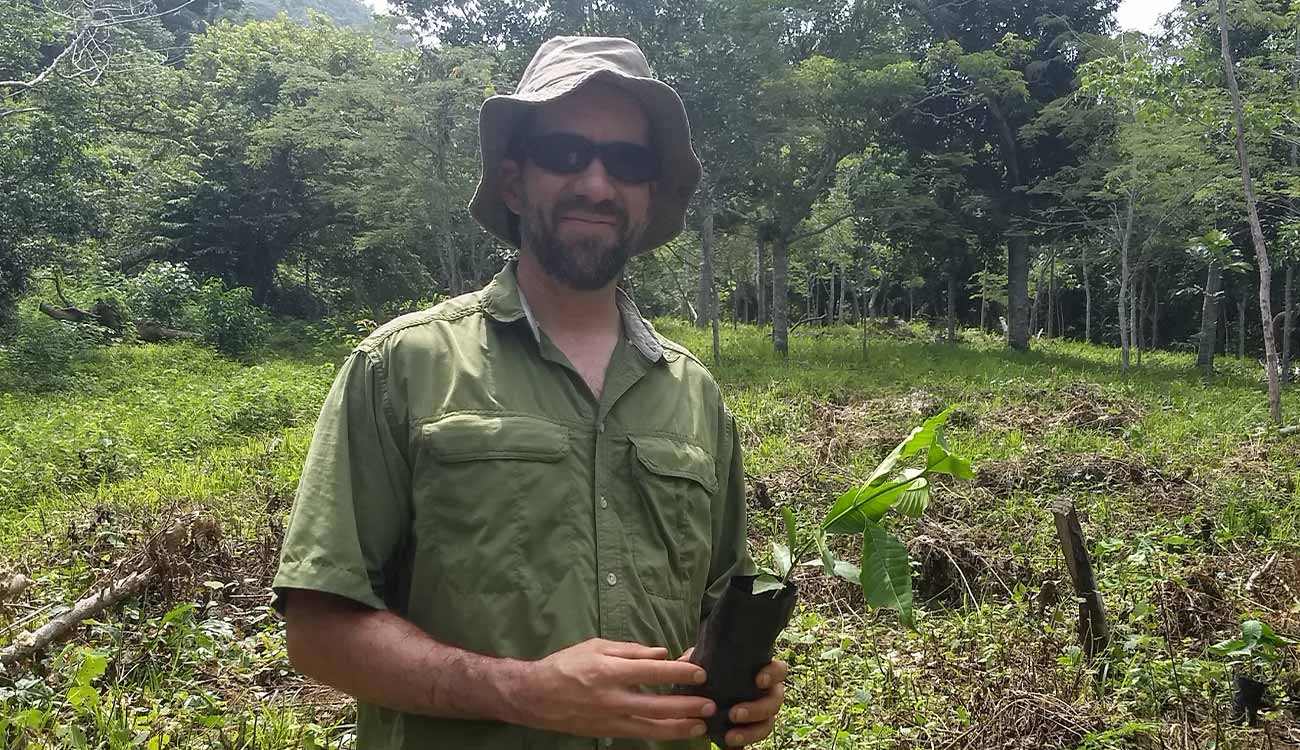When Biology Instructor Jerred Seveyka teaches his students about marine organisms and coral reef biology, he draws on his decade of experience engaged in coral reef monitoring during the summer. And when explaining mass extinction events, he can talk about his volunteer work with professional paleontologists, including work last summer with the North Dakota Geological Survey.
“For about 20 years most of my summers have been at least partially dedicated to conservation-related volunteer work,” says Seveyka.
Seveyka will continue that work this summer when he travels to Brazil to explore deforestation and reforestation effects on wildlife in Brazil with support from a YVC Exceptional Faculty Award.
The awards, made during fall and winter quarters, support faculty who are engaged in activities that will advance their knowledge, teaching and ultimately benefit YVC students — matching funds raised by the YVC Foundation helped establish the awards. During the 2022-23 academic year, Seveyka was among 17 faculty members awarded more than $21,000.
“YVC faculty members are active in their fields and continually working to bring their expertise back into the classroom,” said Jennifer Ernst, vice president for instruction and student services. “Our Exceptional Faculty Awards are an important avenue for supporting faculty engaged in research and other scholarly activities that strengthen their teaching.”
“Some students might not expect that their instructors are actively doing work in what they are teaching. That’s important in understanding that we are active in the field and up on what is happening now.”
— Jerred Seveyka, Biology Instructor
Seveyka’s award will help him travel in early July to the Atlantic forests of the Reserva Ecológica de Guapiaçu north of Rio de Janiero. Once one of the largest rainforests in the Neotropics, the forest is highly threatened today.
For approximately two and a half weeks, Seveyka will help monitor reforestation outcomes on plants and mammals and assist in reforestation efforts by the international environmental organization Earthwatch. That work will include setting up camera and live traps for various mammals, then collecting live animals and reviewing images from camera traps. It’s time intensive work but essential to help determine how well reforested areas are recovering to their original state.
While he’s there, Seveyka also plans to do bird surveys and collect bird recordings to submit to the Cornell Lab of Ornithology and its library of bird recordings.
“Nearly every day of the week I’m doing some type of citizen science,” Seveyka said. “By networking with people working in these various projects, you have an opening to the scientific literature of that region and that particular problem. And that gives me an opportunity to bring that knowledge back to the classroom.”
In the biology courses he teaches, for example, when it comes time to discuss diversification of species and habitat loss, Seveyka can bring in his real-world experiences in the field, including photos and samples he’s collected over the years. He’s also working to build a new class focused on extinction and diversification, and this summer’s work in Brazil will provide an in-depth, on-the-ground perspective to his course development.

“I think the work funded by the Exceptional Faculty Awards is helpful in building credibility,” he said. “Some students might not expect that their instructors are actively doing work in what they are teaching. That’s important in understanding that we are active in the field and up on what is happening now.”
Seveyka previously has participated in reforestation work in Cuba as part of an effort to reintroduce native species, and, here in the Yakima Valley, over the course of several years he and students in the college’s Biology Club planted thousands of baby big sage plants on Cowiche Canyon Conservancy lands that had burned or needed revegetation.
Among other faculty receiving awards were dental hygiene faculty members Deborah Gould, Kimberly Hussey and Olga Gutierrez, who were supported in attending the annual meeting of the American Dental Education Association in March. During the conference, the premier gathering of the dental education community, YVC instructors completed courses on how to support the needs of diverse student and patient populations, diverse teaching strategies for adult learners, and how to foster a commitment to research and lifelong learning, among others.
Gould noted the gathering included interactive workshops, symposia and presentations focusing on innovative ideas in teaching.
“This event provided a unique opportunity for me to share ideas and information and build networks to strengthen my effectiveness as a dental hygiene educator,” Gould said.
